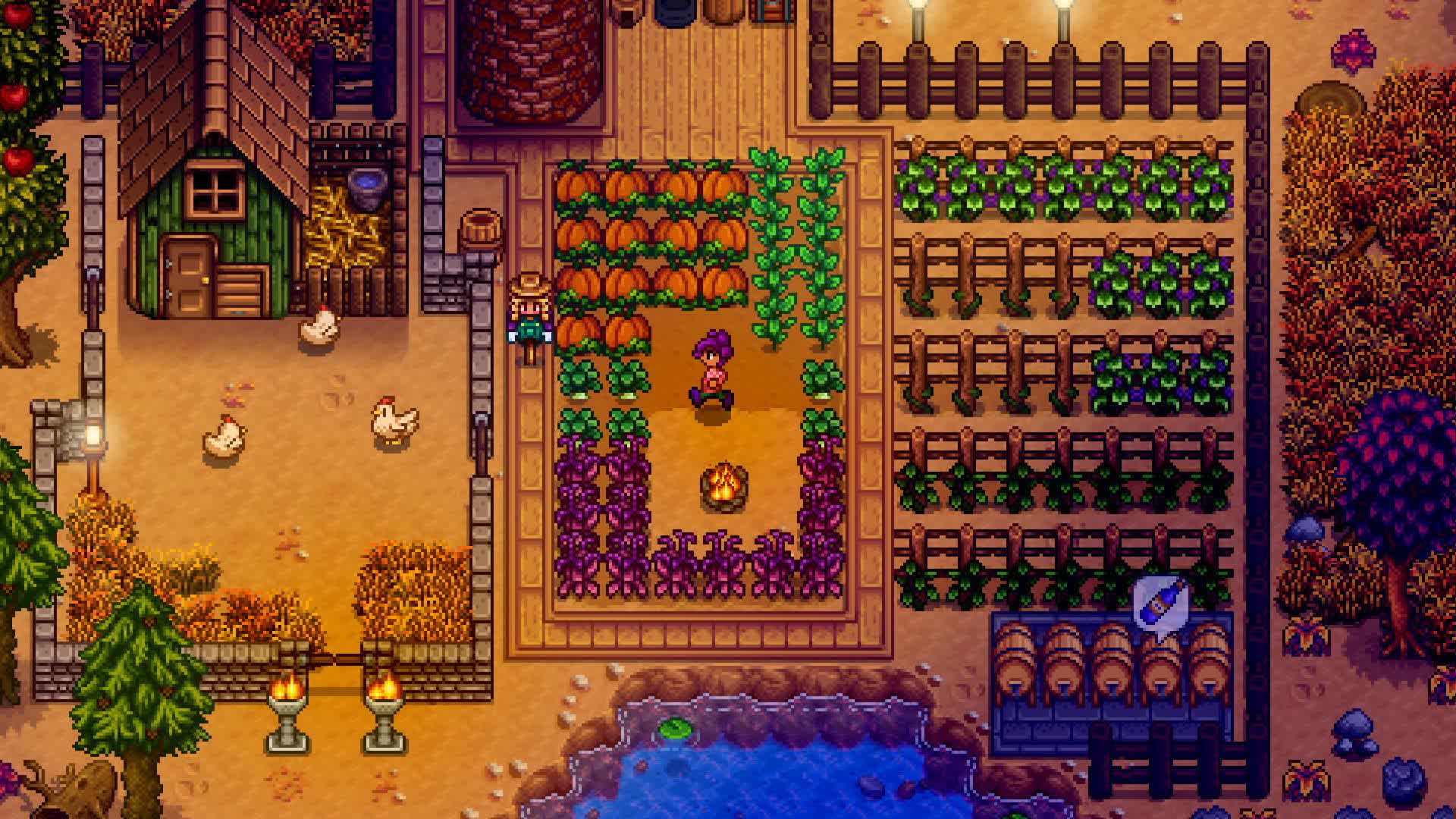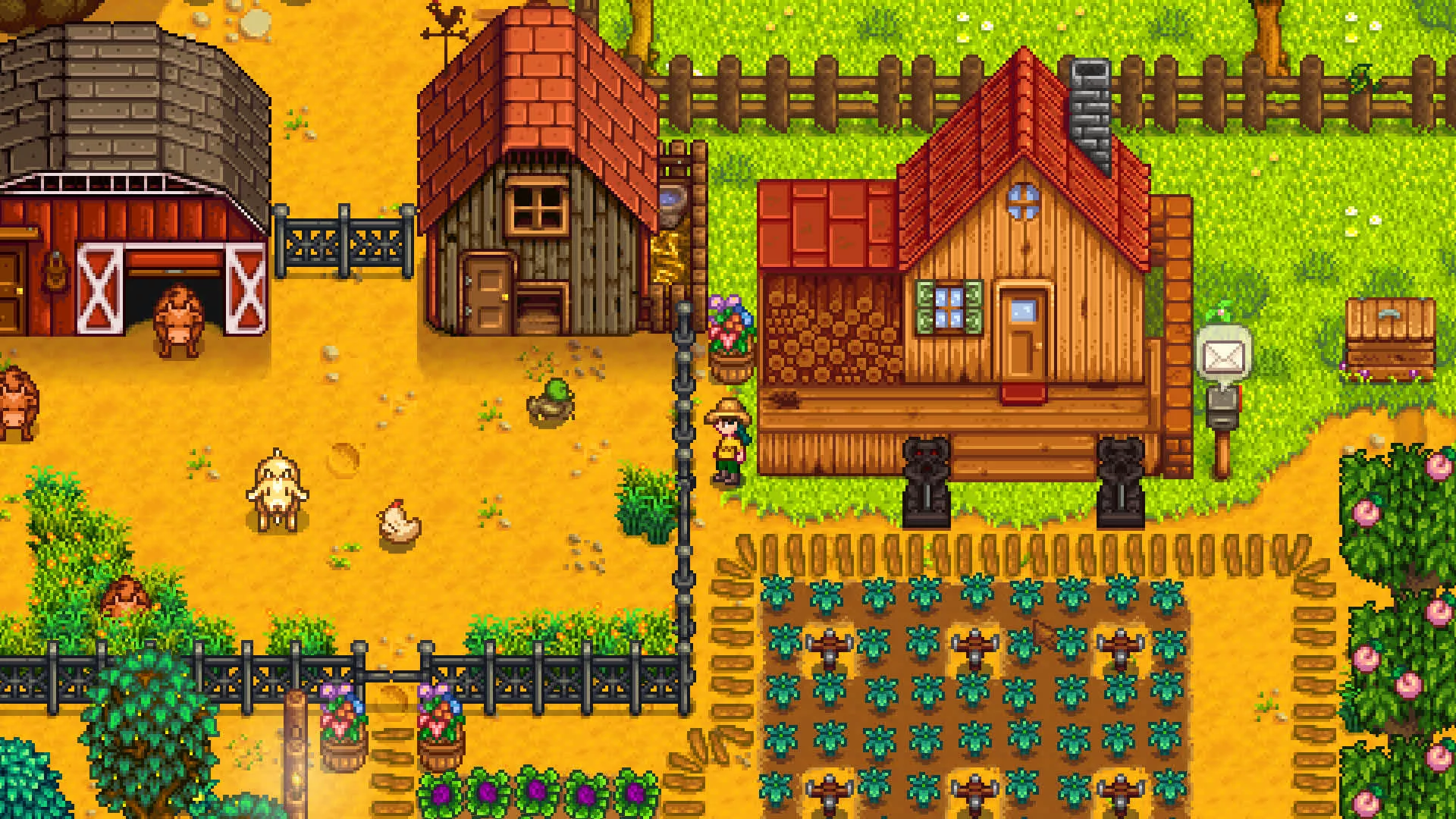Tech News
Stardew Valley creator says he treats PC updates like a “beta test”

Significant Update Delay: While PC users received the highly anticipated version 1.6 update of Stardew Valley earlier this year, mobile and console players will have to wait until November to experience the new features. The game’s developer admitted to treating PC users as beta testers due to platform differences, leading to a delay in updates for other platforms.
Mobile and console versions of Stardew Valley have not seen a major update since 2021, with the upcoming update scheduled for November 4. The game’s creator confirmed that achieving release parity with PC is unlikely for these platforms.
Version 1.6 brought significant additions to the game, including new dialogues, a new farm type, an end-game skill system, minor enhancements, a new festival, and other events. The update resulted in a record-high player count on Steam, with over 236,000 concurrent players.
I’ve always released on PC first, because it’s sort of a “beta test” to make sure there are no critical (e.g. save-destroying) bugs, which are a much bigger deal on consoles because they can’t be patched out as quickly. However, I never intended for the delay to be this long
– ConcernedApe (@ConcernedApe) September 22, 2024
The delay in updating other platforms is due to significant setbacks in development. Eric “ConcernedApe” Barone, the sole developer of Stardew Valley, acknowledged that the porting process is taking longer than anticipated, impacting progress on his next game, Haunted Chocolatier.
Barone reiterated his practice of releasing updates on PC first, treating them as beta releases to address critical issues before updating other platforms to avoid progress-erasing bugs.
The delay is attributed to the certification process each platform requires for updates, unlike PC patches that Barone can upload immediately. While the PC version has received multiple minor updates since version 1.6, the November update for other platforms will align with PC version 1.6.9.
Existing Stardew Valley players on any platform will receive the new content at no additional cost, as Barone has pledged to never charge for DLC or updates. This commitment stands in contrast to other games that monetize additional content through microtransactions and subscriptions.

Stardew Valley’s financial model differs from larger publishers, as the game, primarily developed by one individual, has sold over 30 million copies. This success allows Barone the flexibility to offer free updates and maintain a loyal fan base.
An interesting comparison can be drawn with Dwarf Fortress, a simulation game that transitioned from freeware to a commercial version after 16 years. The game’s creators quickly recouped their investment, showcasing the potential for indie games to thrive in the market.
-

 Destination8 months ago
Destination8 months agoSingapore Airlines CEO set to join board of Air India, BA News, BA
-

 Breaking News10 months ago
Breaking News10 months agoCroatia to reintroduce compulsory military draft as regional tensions soar
-

 Gadgets4 months ago
Gadgets4 months agoSupernatural Season 16 Revival News, Cast, Plot and Release Date
-

 Tech News12 months ago
Tech News12 months agoBangladeshi police agents accused of selling citizens’ personal information on Telegram
-

 Productivity11 months ago
Productivity11 months agoHow Your Contact Center Can Become A Customer Engagement Center
-

 Gadgets4 weeks ago
Gadgets4 weeks agoFallout Season 2 Potential Release Date, Cast, Plot and News
-

 Breaking News10 months ago
Breaking News10 months agoBangladesh crisis: Refaat Ahmed sworn in as Bangladesh’s new chief justice
-

 Toys12 months ago
Toys12 months ago15 of the Best Trike & Tricycles Mums Recommend






















